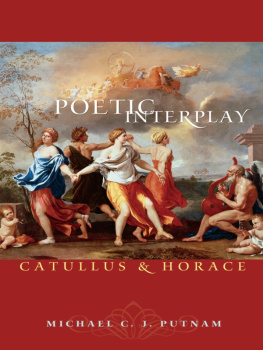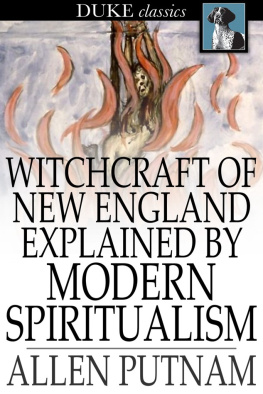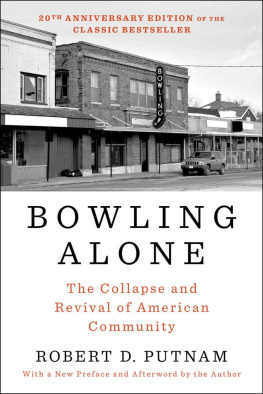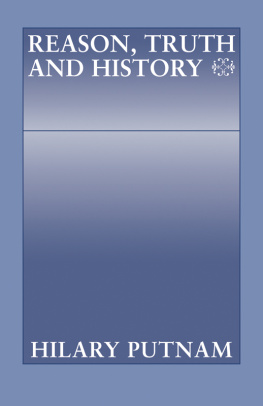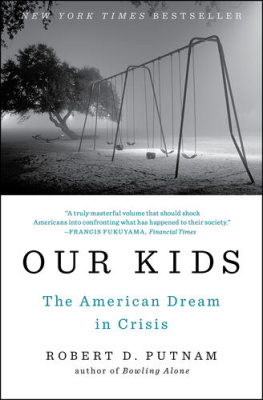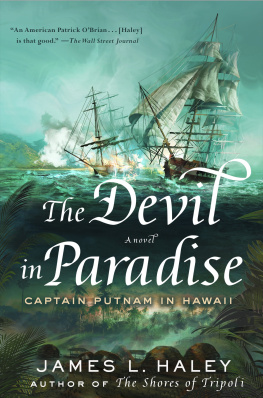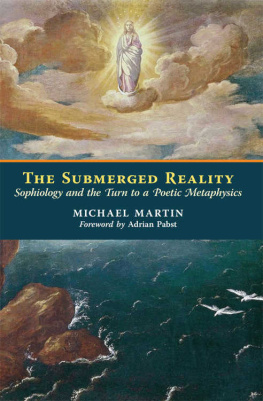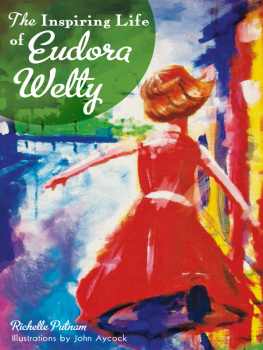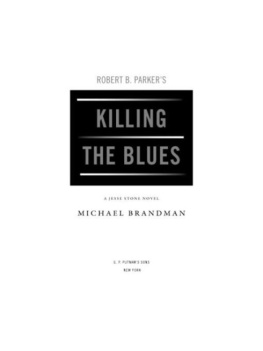Putnam Michael C. J. - Poetic Interplay
Here you can read online Putnam Michael C. J. - Poetic Interplay full text of the book (entire story) in english for free. Download pdf and epub, get meaning, cover and reviews about this ebook. year: 2009, publisher: Princeton University Press, genre: Detective and thriller. Description of the work, (preface) as well as reviews are available. Best literature library LitArk.com created for fans of good reading and offers a wide selection of genres:
Romance novel
Science fiction
Adventure
Detective
Science
History
Home and family
Prose
Art
Politics
Computer
Non-fiction
Religion
Business
Children
Humor
Choose a favorite category and find really read worthwhile books. Enjoy immersion in the world of imagination, feel the emotions of the characters or learn something new for yourself, make an fascinating discovery.
- Book:Poetic Interplay
- Author:
- Publisher:Princeton University Press
- Genre:
- Year:2009
- Rating:3 / 5
- Favourites:Add to favourites
- Your mark:
- 60
- 1
- 2
- 3
- 4
- 5
Poetic Interplay: summary, description and annotation
We offer to read an annotation, description, summary or preface (depends on what the author of the book "Poetic Interplay" wrote himself). If you haven't found the necessary information about the book — write in the comments, we will try to find it.
Poetic Interplay — read online for free the complete book (whole text) full work
Below is the text of the book, divided by pages. System saving the place of the last page read, allows you to conveniently read the book "Poetic Interplay" online for free, without having to search again every time where you left off. Put a bookmark, and you can go to the page where you finished reading at any time.
Font size:
Interval:
Bookmark:
Poetic Interplay
MARTIN CLASSICAL LECTURES

The Martin Classical Lectures are delivered annually at Oberlin College through a foundation established by his many friends in honor of Charles Beebe Martin, for forty-five years a teacher of classical literature and classical art at Oberlin.
John Peradotto, Man in the Middle Voice: Name and Narration inthe Odyssey
Martha C. Nussbaum, The Therapy of Desire: Theory and Practicein Hellenistic Ethics
Josiah Ober, Political Dissent in Democratic Athens: IntellectualCritics of Popular Rule
Anne Carson, Economy of the Unlost (Reading Simonides of Keoswith Paul Celan)
Helene P. Foley, Female Acts in Greek Tragedy
Mark W. Edwards, Sound, Sense, and Rhythm: Listening to Greekand Latin Poetry
Michael C. J. Putnam, Poetic Interplay: Catullus and Horace
Poetic Interplay
CATULLUS AND HORACE
Michael C. J. Putnam
PRINCETON UNIVERSITY PRESS
PRINCETON AND OXFORD
Copyright 2006 by the Trustees of Oberlin College
Requests for permission to reproduce material from this work should be sent to
Permissions, Princeton University Press
Published by Princeton University Press, 41 William Street, Princeton, New Jersey 08540
In the United Kingdom: Princeton University Press, 3 Market Place, Woodstock,
Oxfordshire OX20 1SY
All Rights Reserved
LIBRARY OF CONGRESS CATALOGING-IN-PUBLICATION DATA
Putnam, Michael C. J.
Poetic interplay : Catullus and Horace / Michael C. J. Putnam.
p.cm.(The Martin classical lectures)
Expanded version of the Charles Beebe Martin Classical Lectures, delivered at
Oberlin College in March 2004Pref.
Includes bibliographical references (p. ) and indexes.
eISBN: 978-1-40082-742-8
1. HoraceKnowledgeLiterature. 2. Helen of Troy (Greek mythology) in literature. 3. Catullus, Gaius ValeriusInfluence. 4. Influence (Literary, artistic, etc.) 5. OdesHistory and criticism. 6. VirgilIn literature. 7. RomeIn literature. I. Title. II. Martin classical lectures (Unnumbered). New series.
PA6411.P84 2006
874'.01dc222005054516
British Library Cataloging-in-Publication Data is available
This book has been composed in Sabon
Printed on acid-free paper.
pup.princeton.edu
Printed in the United States of America
10987654321
for Kenneth Gaulin
Contents
Preface
This is the first book-length study of the influence of the poetry of Catullus, whose lifespan extended from approximately 95 to 54 BCE, on the work of Horace, who was born eleven years before his predecessors death and who lived until 8 BCE. It is only a beginning. For one thing, the books primary focus is on the Carmina. There is scant mention of the Epodes or of Horaces hexameter poetry, though here, too, the presence of Catullus is as strongly, if not as universally, felt as upon his lyric output. For another, the project itself by its nature can never be considered complete. More allusions will continue to be noted and their richness explained. Many of the suggestions presented in the subsequent chapters will no doubt be deepened or rethought. At best, as with any work of practical criticism, what follows can serve only as one example out of many ways to approach a subject, scrutiny of which must be ever ongoing. It will achieve its goal if it stimulates further research into, and enhances our appreciation of, the extraordinary dialogue between two of Romes greatest poetsa dialogue that has as much to tell us about the earlier poet as it does about his emulator.
Though this is the first detailed survey of the complementarity between Catullus and Horace, there have been many individual studies devoted to particular examples of verbal interaction between the two poets. These stretch from analyses of individual words to critiques of whole poems and groups of poems. I have endeavored to acknowledge, in the notes and in the bibliography, the many debts that my work owes to previous investigations of the topic. I can only appeal to the extensive nature of the scholarship involved as excuse for the omissions that will have occurred.
The book is an expanded version of the Charles Beebe Martin Classical Lectures, delivered at Oberlin College in March 2004. I am honored to have been chosen as the sixty-seventh presenter in a series initiated in 1931, and I am grateful to Thomas Van Nortwick and to the other members of the Martin Committee for their invitation. The warm, attentive hospitality of the faculty of the colleges Classics Department and its associates in other fields left nothing to be desired, and would have been applauded by the two authors who form the subject of the pages that follow.
The fifth chapter is an expanded version of a paper, entitled Catullus and Horace: Some Questions of Genre, delivered at the University of Chicago in February 2004.
The book is the product of many years of teaching, and writing about, these extraordinary poets. I am grateful to my students and colleagues during those years, at Brown and elsewhere, for their affectionate stimulus. I must also thank my two readers, Ronnie Ancona, for Oberlin College, and Ortwin Knorr, for Princeton University Press. Their criticisms, both collectively and individually, helped improve the manuscript, in general presentation and in detail. Friends and family, especially Polly Chat-field, have been ever helpful. My discussions of Latin poetry with Kenneth Reckford go back farther than perhaps he and I would now prefer to remember. I must also extend my gratitude, in particular, to Alessandro Barchiesi, Jenny Clay, Jonathan Culler, Denis Feeney, William Fitzgerald, Michle Lowrie, Ellen Oliensis, Pietro Pucci, Matthew Santirocco, the late Charles Segal, and David Wray, superlative readers of these poets, whose work touches many of the pages that follow. I am also most grateful to Sherry Wert of Princeton University Press for the care of her editing. The blemishes that remain are my responsibility.
Michael C. J. Putnam
Providence, Rhode Island
Poetic Interplay
Introduction
Horaces only mention of Catullus occurs in the final poem of his first collection, the initial book of Satires, published probably in 35 BCE. We come in on the narrator arguing that, for a great poet, particularly one writing in a genre like satire, whatever brings a smile (ridiculum) can often put across mighty matters better than what is bitter or sardonic (acri) (1619):
illi scripta quibus comoedia prisca viris est
hoc stabant, hoc sunt imitandi; quos neque pulcher Hermogenes umquam legit neque simius iste nil praeter Calvum et doctus cantare Catullum.
By this means those who wrote Old Comedy gained success, in this they are worthy of imitationmen whom pretty Hermogenes never reads nor that ape of yours whose skill lies in declaiming nothing except Calvus and Catullus.
What is meant as a rebuke to the simius, who has no imagination and can only imitate others, serves equally as a complimentas the saying has it, the sincerest form of flatteryto Calvus and Catullus, friends who are on occasion linked by later authors. Both were key figures in the group of neoteric poets, the so-called poetae novi, active in the middle decades of the first century BCE and writing fresh verse in a variety of meters, often after the manner of Callimachus. Their work set a standard for originality that challenged poets to come, whatever genre they embraced. Put another way, to Horace, publishing his first book of poetry some twenty years after Catulluss death, the earlier master has already become a paragon, worthy of emulation but, for the very reason of his excellence, easily showing up the mediocrity of imitators lacking individual talent.
Next pageFont size:
Interval:
Bookmark:
Similar books «Poetic Interplay»
Look at similar books to Poetic Interplay. We have selected literature similar in name and meaning in the hope of providing readers with more options to find new, interesting, not yet read works.
Discussion, reviews of the book Poetic Interplay and just readers' own opinions. Leave your comments, write what you think about the work, its meaning or the main characters. Specify what exactly you liked and what you didn't like, and why you think so.

